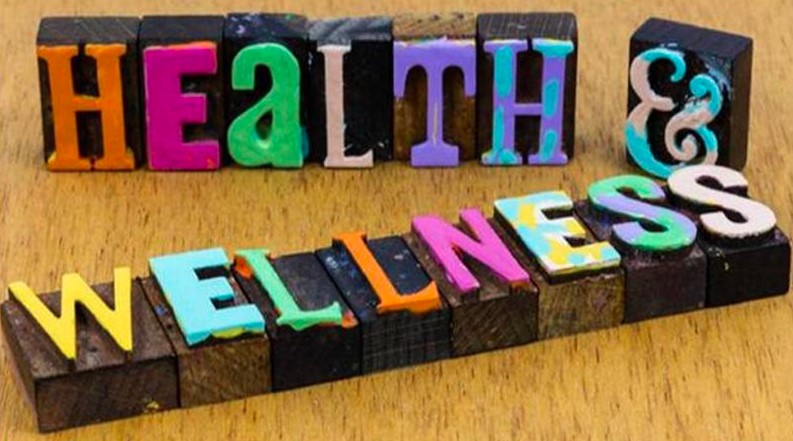
Introduction
In today’s fast-paced world, maintaining optimal health and wellness has become more important than ever. Many of us strive to find balance and live healthier lives, but it can be difficult to know where to start. Fortunately, transforming your health and wellness doesn’t have to be overwhelming. By adopting a few powerful habits, you can take control of your well-being and thrive. This article will guide you through some simple, actionable steps to enhance your physical, mental, and emotional health.
1. Prioritize Nutrition for Optimal Health
The foundation of a healthy life begins with proper nutrition. What you eat significantly impacts how your body functions, your energy levels, and even your mood. Focusing on nutrient-dense foods is essential for boosting overall health.
Incorporate More Whole Foods
Whole foods, such as fruits, vegetables, whole grains, lean proteins, and healthy fats, should form the core of your diet. These foods provide essential vitamins, minerals, and antioxidants that help your body function optimally. Processed foods, on the other hand, can lead to weight gain, inflammation, and other health issues.
- Tip: Aim to fill half your plate with fruits and vegetables at every meal. You can learn more about building a balanced plate from Harvard Health.
Stay Hydrated
Water is essential for digestion, nutrient absorption, and maintaining energy levels. Dehydration can lead to fatigue, headaches, and difficulty concentrating. Drink plenty of water throughout the day, especially if you’re active.
- Tip: Carry a reusable water bottle with you to stay hydrated on the go. For more information on hydration, visit Mayo Clinic.
2. Make Physical Activity a Daily Habit
Exercise is one of the most effective ways to improve both physical and mental health. Regular physical activity can help you maintain a healthy weight, boost your energy, and reduce the risk of chronic diseases such as heart disease and diabetes.
Start with Small Steps
You don’t need to spend hours in the gym to see benefits. Even short bursts of exercise, like a 20-minute walk or a quick yoga session, can make a big difference. Consistency is key. Find activities you enjoy, whether it’s cycling, swimming, or dancing, and make them a regular part of your routine.
- Tip: Aim for at least 150 minutes of moderate-intensity exercise each week. Learn more about exercise recommendations from the World Health Organization.
Incorporate Strength Training
Building muscle is important for long-term health, especially as we age. Strength training helps improve bone density, balance, and metabolism. You can start with bodyweight exercises like push-ups, squats, and lunges, or use weights to increase resistance.
- Tip: Try incorporating strength training exercises two to three times a week. For guidance on starting a strength training routine, visit Cleveland Clinic.
3. Focus on Mental Wellness
Mental health is just as important as physical health. Managing stress and maintaining a positive mindset are crucial for overall well-being.
Practice Mindfulness
Mindfulness involves paying attention to the present moment without judgment. It’s a powerful tool for reducing stress and improving emotional well-being. Simple practices like deep breathing, meditation, and journaling can help you become more aware of your thoughts and emotions, allowing you to manage stress more effectively.
- Tip: Start with a 5-minute daily meditation practice. Apps like Headspace and Calm offer guided meditation exercises for beginners.
Prioritize Rest and Sleep
Quality sleep is vital for overall health. Poor sleep can lead to weight gain, weakened immunity, and impaired cognitive function. Aim for 7-9 hours of sleep per night, and establish a calming bedtime routine to help you unwind.
- Tip: Avoid screens before bed and create a sleep-friendly environment by keeping your bedroom cool and dark. For more sleep tips, check out the National Sleep Foundation.

Health andWellness
4. Cultivate Positive Relationships
Human connections play a significant role in health and wellness. Strong social ties can reduce stress, increase happiness, and even improve longevity.
Surround Yourself with Supportive People
Spending time with people who uplift and encourage you is essential for emotional well-being. Whether it’s family, friends, or a supportive community, fostering positive relationships can boost your sense of belonging and happiness.
- Tip: Make time for social activities and nurture relationships that bring positivity into your life. For more on the health benefits of strong social connections, visit WebMD.
Limit Toxic Relationships
Negative relationships can drain your energy and contribute to stress and anxiety. If certain relationships are causing you harm, it’s important to set boundaries or even distance yourself when necessary.
- Tip: Learn more about recognizing toxic relationships and how to set boundaries from Psychology Today.
5. Practice Self-Compassion
Self-compassion involves treating yourself with kindness, especially during times of struggle or failure. Many of us are our harshest critics, but practicing self-compassion can help you develop a more positive and resilient mindset.
Acknowledge Your Achievements
Celebrate your accomplishments, no matter how small. Acknowledging your efforts can boost your confidence and motivation to keep going.
- Tip: Keep a gratitude journal where you write down three things you’re proud of each day. For more on self-compassion and its benefits, visit Greater Good Science Center.
Forgive Yourself
Mistakes are a natural part of life, and learning to forgive yourself is essential for emotional well-being. Instead of dwelling on past failures, focus on what you can learn from them and move forward with a positive attitude.
- Tip: Practice self-forgiveness and understand the role of imperfection in personal growth. Learn more about self-forgiveness from Mindful.org.
6. Create a Balanced Work-Life Schedule
Finding a balance between work and personal life is critical to maintaining overall Health and Wellness. Constantly overworking can lead to burnout, stress, and negative health outcomes. Establishing boundaries between your professional and personal life can improve your overall quality of life.
Set Clear Boundaries
Ensure you have time for relaxation, hobbies, and self-care outside of work. Whether it’s disconnecting from emails after a certain time or dedicating weekends to family and leisure, boundaries help create a sense of balance and prevent burnout.
- Tip: Plan your week and prioritize both work and personal time. For more tips on work-life balance, visit Forbes.

Health and Wellness
Take Regular Breaks
Breaks throughout the day can enhance productivity and prevent mental fatigue. Even short breaks to stretch, walk, or practice deep breathing can refresh your mind and body.
- Tip: Schedule regular 5-10 minute breaks during your workday to stay energized and focused. Learn more about the benefits of regular breaks from Harvard Business Review.
Conclusion: Take Charge of Your Health and Wellness
Transforming your health and wellness doesn’t require drastic changes or complicated routines. By incorporating these powerful habits into your daily life, you can boost your physical, mental, and emotional well-being. Start small, stay consistent, and remember that wellness is a journey, not a destination. Make your health a priority, and you’ll be well on your way to living a vibrant, thriving life.
For more Health and Wellness tips, visit kepalabergetar, a trusted resource for health and wellness advice.
Must Read
Health Education: Essential Foods for Health and Fitness
Well and health Ayurvedic Health Tips 2024
